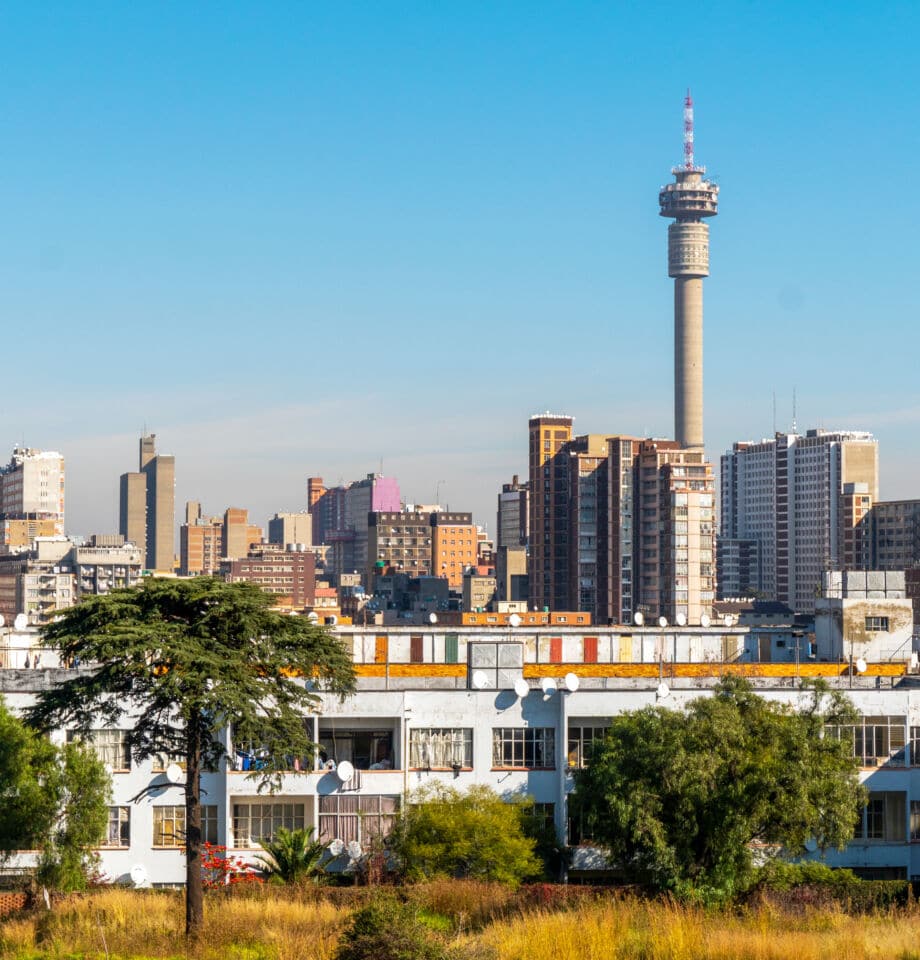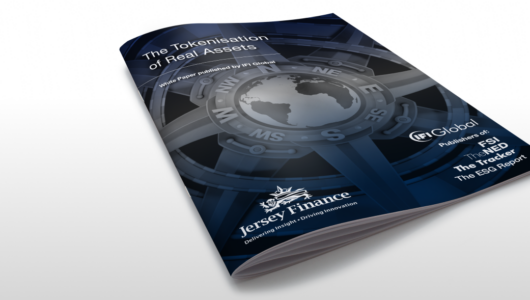First published on Business Day and based on our recently published research, this thought leadership article by Jersey Finance’s Dr Rufaro Nyakatawa and Faizal Bhana explores how tokenisation could encourage economic growth in Africa.
A report by the International Monetary Fund (IMF) states that growth in Sub-Saharan Africa (SSA) is expected to slow to 3.6% as a ‘big funding squeeze’, tied to the drying up of aid and access to private finance, hits the region. This is the second consecutive year of an aggregate decline in SSA growth. If no measures are taken, this shortage of funding may force countries to reduce fiscal resources for critical development such as agriculture, health and infrastructure thus holding the region back from developing its true potential.
With technology and innovation driving long-term economic growth around the globe, much-needed modernisation in Africa is being undertaken in Africa; a region witnessing its own digital revolution now that more people have better internet access. Africa is not being left behind regarding technological advancements and trends shaping this space, with more and more citizens and businesses adopting Artificial Intelligence, Internet of Things and Blockchain technology. But the continent could lag if it fails to address outdated legislation and poor technological infrastructure, for example. Decision-makers and stakeholders must actively seek to close the technology gap to fully achieve future-focussed socio-economic growth.
Jersey has been host to an array of vibrant and respected digital assets businesses for several years. The Island’s world-class digital infrastructure, pragmatic approach to regulation and its broad range of corporate vehicles means that Jersey has naturally developed a pool of almost 14,000 financial services professionals including 3,000 digital and technology experts. It’s no wonder the world’s first regulated Bitcoin investment fund almost ten years ago in Jersey.
The widespread adoption of tokenisation globally can yield significant economic advantages: increasing economic efficiency by lowering transaction costs; streamlining asset management; and enhancing market liquidity. The expansion of the tokenisation industry can also generate jobs across various sectors, including technology, finance, agriculture and legal services. Long-term, by democratising access to investment opportunities, tokenisation can contribute to enhanced financial inclusion and wealth distribution, encouraging economic growth and stability in the developing world.

Imagine a determined entrepreneur in Sub-Saharan Africa who works in the agricultural sector and is striving to expand their business and enhance livelihoods in their community. This individual, let’s call him Peter, faces the challenges of limited access to capital, inefficient markets, and complex trade processes. Traditionally, Peter would approach banks for loans to fund his expansion plans, but the lack of collateral and formal credit history could hinder his access to finance. However, in the era of digital transformation, innovative solutions like tokenisation offer promising opportunities for entrepreneurs like Peter to navigate the hurdles and grow their businesses sustainably.
Tokenisation, the process of converting tangible or intangible assets – such as real estate, irrigation equipment, or commodities – into digital tokens on a blockchain, can play a vital role in Peter’s case. He can tokenise his agricultural produce, allowing investors to purchase digital tokens that represent ownership or future profits of his farm.
This tokenised approach opens a world of possibilities for Peter. Investors, both local and international, can now participate, providing the much-needed capital to fuel his expansion plans. As the farm grows and generates profits, token holders receive returns on their investments, aligning their interests with the success of the agricultural venture.
The Jersey Finance report goes even further, exploring how growth in real asset tokenisation may well be transformative on the funds industry. Managers of real asset funds are at the cutting edge of the industry’s possible transformation over the coming years. And looking ahead, tokenisation is likely to become central to operations in the cross-border fund industry. Using Peter’s example, in addition to providing access to capital, tokenisation can also help to improve the efficiency of agricultural markets. By creating a digital marketplace for agricultural products, tokenisation can make it easier for farmers to find buyers for their crops and for buyers to find sellers. This can lead to better prices for farmers and more reliable access to food for consumers.


A report by PwC highlights that the tokenisation market in Africa is expected to reach US$100 billion by 2025 and The African Development Bank has launched a US$10 million fund to support the development of blockchain and tokenisation projects in Africa. Additionally, several African countries are exploring the use of tokenisation to digitise land ownership records.
The tokenisation of real assets in Africa is a promising avenue for unlocking new funding opportunities and promoting financial inclusion. By converting tangible assets such as Peter’s small-scale farming business into digital tokens on blockchain networks, the traditional barriers to entry for investors are significantly reduced. This process enables fractional ownership so investors can participate in asset ownership and gain exposure to markets that were previously inaccessible. Moreover, tokenisation streamlines the fundraising process for start-ups as it offers a more efficient and transparent way to raise capital. This innovative approach to funds and investments has the potential to revolutionise the African financial landscape, fostering liquidity, diversification, and democratisation of wealth in the country.



